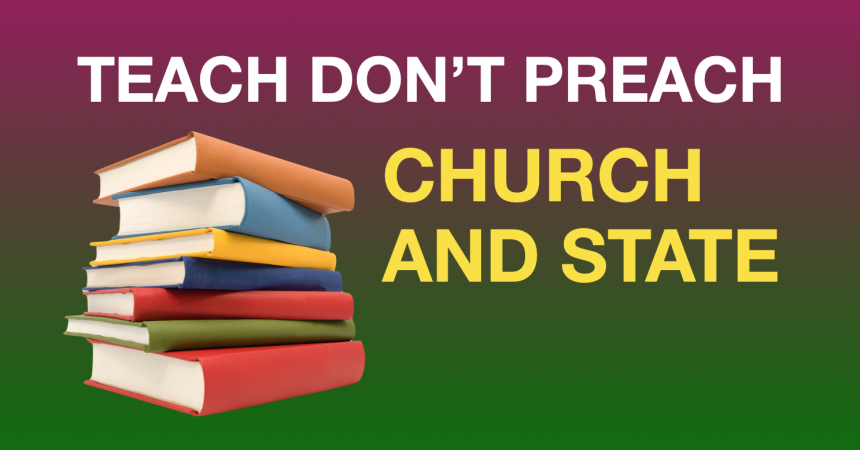
The Catholic Church: Undermining the right to school Freedom of Conscience
Catholic Church in Ireland campaign to maintain privileged position in schools
The Catholic Church in Ireland campaign to maintain their privileged position by claiming that:-
“To equate all religions is to empty them of any significance”.
How does treating equally all religions and philosophical convictions empty them of significance?
The UN has said that:-
10. If a set of beliefs is treated as official ideology in constitutions, statutes, proclamations of the ruling parties, etc., or in actual practice, this shall not result in any impairment of the freedoms under article 18 or any other rights recognized under the Covenant nor in any discrimination against persons who do not accept the official ideology or who oppose it.
The State has a duty of neutrality with regard to religious and philosophical beliefs but despite this the Catholic Church in Ireland retains a privileged position.
The Catholic Church are campaigning to retain their privileged position by promoting inequality between religions and philosophical convictions. They want the State to continue to disregard its duty of neutrality and continue to grant them a privileged position in Irish society. Equality before the law and equal protection of the law without discrimination is a fundamental part of human rights law.
Article 18 of the UN Covenant on Civil Political Rights protects theistic, non-theistic and atheistic beliefs, as well as the right not to profess any religion or belief. The terms belief and religion are to be broadly construed. Article 18 is not limited in its application to traditional religions or to religions and beliefs with institutional characteristics or practices analogous to those of traditional religions. The UN views with concern any tendency to discriminate against any religion or belief for any reasons, including the fact that they are newly established, or represent religious minorities that may be the subject of hostility by a predominant religious community.
Article 9 of the European Convention provides:
“1. Everyone has the right to freedom of thought, conscience and religion; this right includes freedom to change his religion or belief and freedom, either alone or in community with others and in public or private, to manifest his religion or belief, in worship, teaching, practice and observance.
2.Freedom to manifest one’s religion or beliefs shall be subject only to such limitations as are prescribed by law and are necessary in a democratic society in the interests of public safety, for the protection of public order, health or morals, or for the protection of the rights and freedoms of others”
The scope of this right protects equally all religions and beliefs and has never been confined to the main recognised religions or a religious majority in a particular country.
1) Scope of protection of Article 9
Whilst Article 9 of the Convention concerns freedom of religion in particular, the protection afforded by this provision is much broader and applies to all personal, political, philosophical, moral and, of course, religious convictions. It extends to ideas, philosophical convictions of all kinds, with the express mention of a person’s religious beliefs, and their own way of apprehending their personal and social life. For example, as a philosophy, pacifism falls within the scope of application of Article 9 of the Convention, since the attitude of a pacifist can be regarded as a “belief”.
10. Personal convictions are more than mere opinions. They are ideas that have attained a certain Level of cogency, seriousness, cohesion and importance. It must be possible to identify the formal content of convictions.
11. The Convention institutions do not have competence to define religion, but it must beinterpreted non-restrictively. Religious beliefs cannot be limited to the “main” religions.
The religion in question does have to be identifiable, though an applicant’s wish to describe his or her belief as a religion will be favourably regarded in the event of an unjustified interference by the State. There is hardly any case-law concerning the main religions because the tenets are known and the relations with the States are well established. However, the issue is more delicate regarding minority religions and new religious groups that are sometimes called “sects” at national level. According to the Court’s current case-law, all religious groups and their members enjoy equal protection under the Convention.”(page 6)
It is clear that the Catholic Church are afraid of losing privilege and are not committed to the right to freedom of conscience, religion and belief for all.
This is supposed to be a Republic where all citizens are treated equally. It is time for the State to respect and protect equally the religious and philosophical convictions of ALL citizens.







0 Comments
No comments!
There are no comments yet, but you can be first to comment this article.